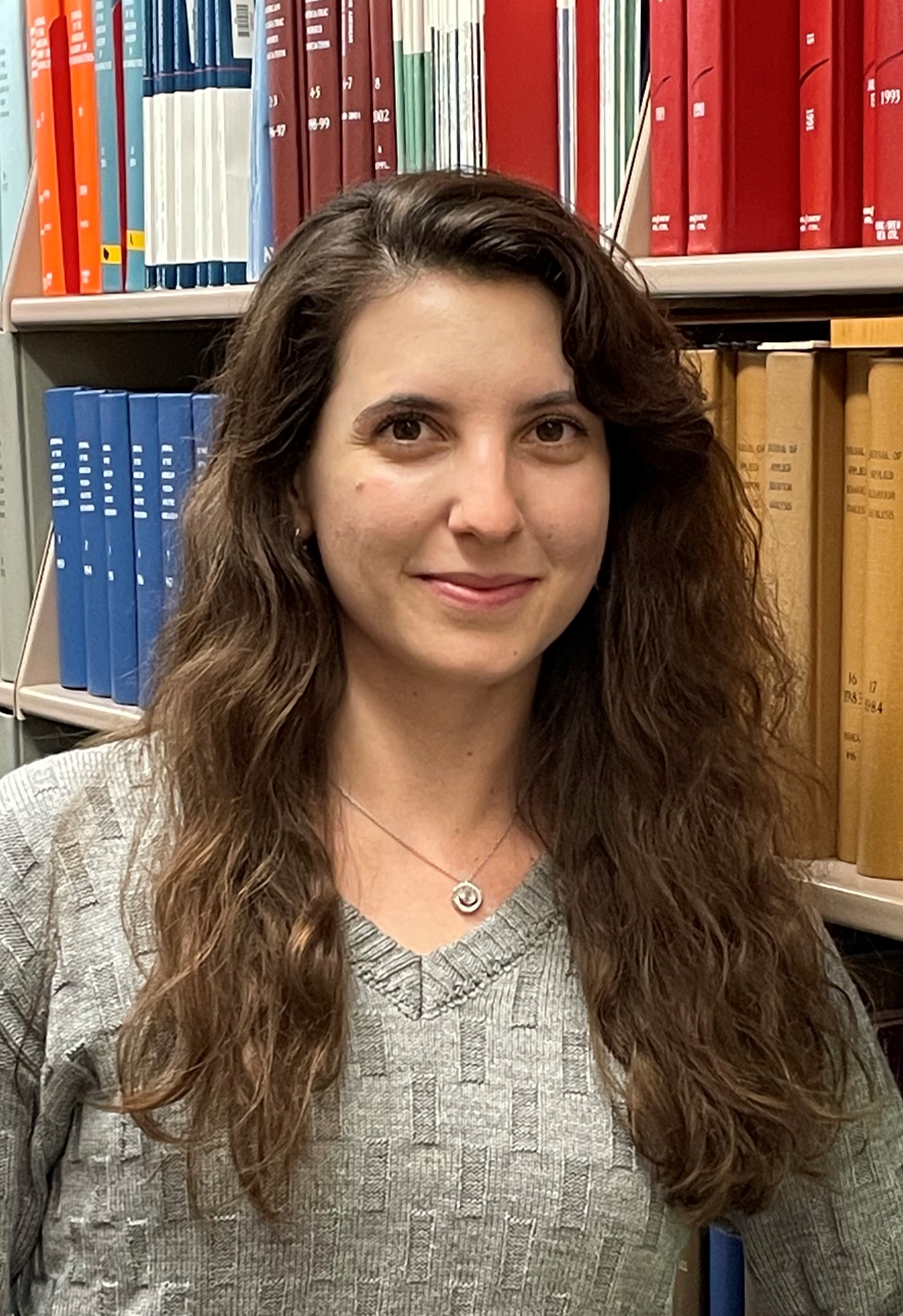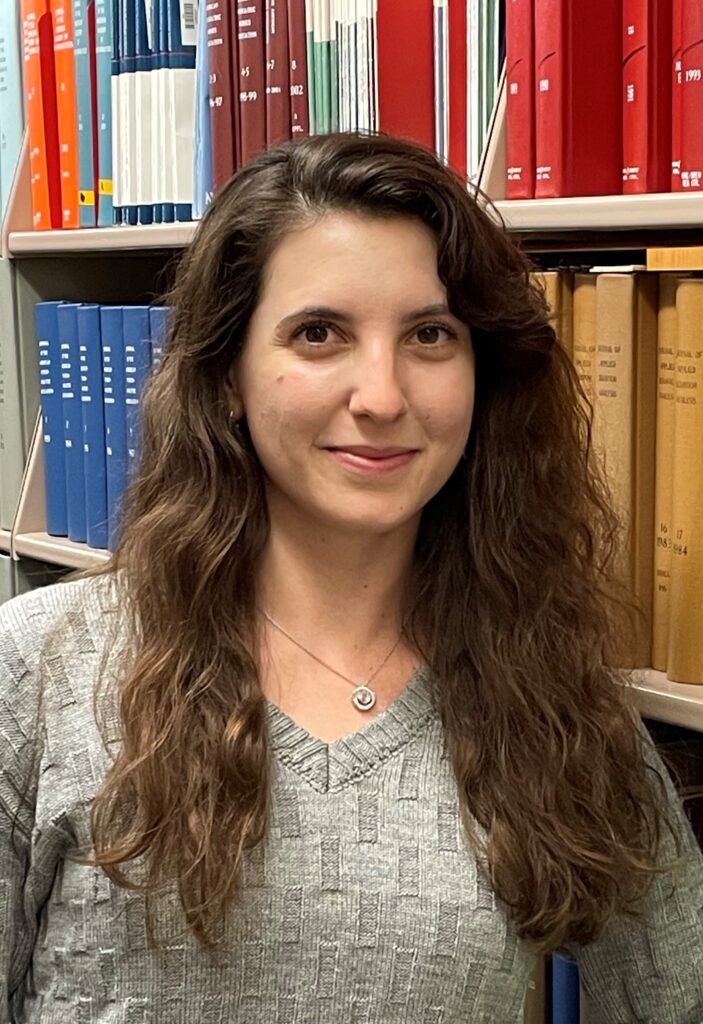
Renée Hartig, Ph.D.

Renée Hartig, Ph.D.

With her beginning at Stony Brook University, Dr. Hartig conducted research in the laboratories of Drs. Hoi-Chung Leung and Mary Frame. She was introduced to human behavior, EEG and fMRI studies in Dr. Leung’s lab, which focused on working memory and concurrent recording of physiological metrics, such as pupil responses during task engagement. She further deepened her knowledge of biomedical engineering in Dr. Frame’s laboratory, analyzing the endovascular changes after thermal injury in rodents. These experiences cemented her appreciation for multidisciplinary approaches and diverse perspectives in addressing neuroscientific questions.
Dr. Hartig pursued her graduate education at the International Max Planck Research School in Tübingen, Germany, with doctoral research conducted in the laboratory of Dr. Henry Evrard at the Centre for Integrative Neuroscience and the Max Planck Institute for Biological Cybernetics. In collaboration with Max Planck Director Nikos K. Logothetis, they established novel experimental setups for interoceptive stimulation along with simultaneous neuroimaging and neural recording. She graduated summa cum laude from the University of Tübingen, specializing in neural and behavioral sciences. Her research on the anatomical and functional organization of the primate insular cortex highlighted key similarities in thalamocortical circuits of human and non-human primates, providing valuable insights for future neurobiological research.
In 2019, Dr. Hartig joined Dr. Wolfgang Kelsch’s lab at the Central Institute for Mental Health in Mannheim and the University of Heidelberg, where her postdoctoral training expanded to include multi-site electrophysiological recording in rodents during olfactory processing and reward learning. In 2020, Dr. Hartig was awarded a TransMed/Focus Translational Neurosciences Fellowship. She then joined the University Medical Center at Johannes Gutenberg-University in Mainz, where she successfully harnessed the resources to revitalize a transgenic murine line for Autism Spectrum Disorder research.
Dr. Hartig is passionate about science communication, global collaboration, and educational outreach. She initiated the Collaborative Science Symposium (CSS), a research training program, which was launched at universities in Kenya, Nigeria and Zambia. For this work, Dr. Hartig and her team were awarded support grants by the Max Planck International Division. Collaboration with African researchers and clinical scholars further contributed to establishing the BioRTC Bioimaging Center in Western Africa, in partnership with TReND in Africa and neurodegeneration expert Dr. Mahmoud Maina.
Dr. Hartig is a tenure-track investigator at NKI’s Center for Biomedical Imaging and Neuromodulation (CBIN) and Translational Neuroscience Laboratories (TNL). She is a co-Investigator on the NIMH-funded Conte Center grant focused on the role of slow brain network fluctuations underlying cognition and bodily processes. Dr. Hartig is further developing a chemosensory research program using translational models to better understand the neurobiological processes underlying brain health and disease.
Undergraduate and graduate students interested in conducting an internship and/or research thesis project at NKI can reach out to Dr. Hartig directly by email.
Current Funding:
P50 MH109429, NIMH, USA
C. Schroeder (MPI), co-Investigator
04/01/2023 – 03/31/2028
Neurobiology and Cognitive Role of Slow Brain Network Fluctuations
Leibniz Collaborative Excellence Grant, Germany
A. Stroh (MPI), co-PI
04/01/2021 – 12/31/2024
Learning Resilience: Supporting neuronal network state transitions to foster stress resilience
FWO Research Grant G0E0520N, Belgium
W. Vanduffel/H. Evrard (MPI)
01/01/2020 – 12/31/2024
Co-localization and neuromodulation of interoceptive and emotional processes in the insular cortex
Select Publications
- Hartig R. & Wilson D. The Olfactory System. (in press). In G. Paxinos & MS. Kassem (Eds) The Rat Nervous System, 5th Edition, Elsevier Academic Press.
- Wolf, D., Hartig, R., Zhuo, Y., Scheller, M. F., Articus, M., Moor, M., … Kelsch, W. (2024). Oxytocin induces the formation of distinctive cortical representations and cognitions biased toward familiar mice. Nature Communications, 15(1).
- Hartig, R., Karimi, A., Evrard HC. (2023). Interconnected sub-networks of the macaque monkey gustatory connectome. Frontiers in Neuroscience, 16.
- Winkelmeier, L., Filosa, C., Hartig, R., Scheller, M., Sack, M., Reinwald, J. R., … & Kelsch, W. (2022). Striatal hub of dynamic and stabilized prediction coding in forebrain networks for olfactory reinforcement learning. Nature Communications, 13(1).
- Petkov, C. I., Flecknell, P., Murphy, K., Basso, M. A., Mitchell, A. S., Hartig, R., Thompson-Iritani, S. (2022). Unified ethical principles and an animal research ‘Helsinki’ declaration as foundations for international collaboration. Current Research in Neurobiology, 3.
- Hartig, R., Glen, D., Jung, B., Logothetis, N. K., Paxinos, G., Garza-Villarreal, E. A., Messenger A., Evrard, H. C. (2021). The subcortical atlas of the rhesus macaque (SARM) for neuroimaging. NeuroImage, 235, 117996.
- Hartig, R., Wolf, D., Schmeisser, M. J., & Kelsch, W. (2021). Genetic influences of autism candidate genes on circuit wiring and olfactory decoding. Cell and Tissue Research, 383(1).
- Google Scholar: https://scholar.google.com/citations?user=uFy_EgwAAAAJ&hl=de&oi=ao

